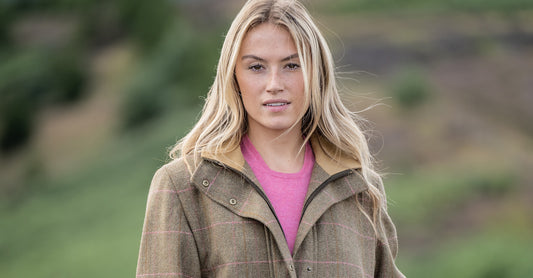
Looking After Our Countryside Cats: Indoor and Outdoor Care
16 Aug 2021Cats are beautiful creatures that we feel privileged to share our homes with. Whether they cuddle up with us indoors or are out and about like little tigers in a countryside jungle, we adore these intelligent and playful animals that have been by our sides for thousands of years. Cats all have their own unique personalities, which means some may love staying indoors while others will yearn to be let outside for the day. Here are some benefits, dangers, drawbacks, and care tips for having an indoor or outdoor country feline.
Raising A Barn Cat
Before we go on to discuss indoor and outdoor cats, we wanted to note that you can also give a feral/semi-feral cat a home by keeping one in your barn, stables, small holding, etc. These cats are often never rehomed, as they can’t live in a house like a domesticated cat. They need someone to care for them while still having their independence. They can be hugely beneficial in providing an environmentally friendly form of pest control and while they may not like human contact too much at first, they can warm up to you over time.
Benefits of Having a Country Cat Outdoors
Fulfilling their Natural Instincts
One of the biggest pawsitives (sorry we couldn’t help ourselves) is that letting a cat outside will help them satisfy their natural instincts for hunting, this means that your cat will have less behavioural issues down the road.Natural Pest Control
a hunting cat has a big benefit for country dwellers since they can take care of pests like mice and rats on your property (though watch out for them leaving a gift in the house for you…).Exercise and Stimulation
The great outdoors can offer so much more space and smells than four walls ever could, and this helps your cats physical and mental health.Low Maintenance
For an outdoor cat, the world is their back garden, and therefore their litterbox. Meaning that they will not require their indoor litter changed as often. Also, with destructive behaviours such as biting and scratching being relieved outside, your furniture and curtains will be spared.Possible Dangers for Outdoor Cats
Some of the possible dangers an outdoor cat can face are:- Injuries from consuming poison, running into traffic and fighting with animals (e.g. foxes, badgers, dogs, and other cats).
- They can catch diseases and infections as well parasites like fleas and ticks when out and about.
- Getting lost or rehomed (we all know someone who has taken in a “stray” that turned out to be someone else’s cat!).
Tips for Taking Care of an Outdoor Cat
Here are some of the things you can do to keep your cat safe when outdoors:- Get them microchipped and have them wear a collar so that if they get lost you can be reunited with them when they are found by other people (a tractive collar gives you access to live GPS tracking)
- Make sure they regularly visit the vet to have up to date vaccinations.
- On a monthly basis give your cat flea and tick treatments, if they regularly hunt make sure to give them worming treatment frequently.
- Neuter and spay your cat.
- Use treats and mealtimes to train your cat to return, especially before night-time so they can be kept indoors until the morning.
- Having a cat flap to let them come and go freely during the day. Even better if you splurge out for a microchip cat flap (like these Closer Pets ones) that ensures your cat can come and go as they please (without unexpected guests!).
- If you live in an urban area, or an area with heavy traffic, we strongly urge that you keep your cat indoors.
Benefits of an Indoor Country Cat
A Longer Life Expectancy
Indoor cats tend to have a longer life expectancy than an outdoor cat, this is due to them not being exposed to the same dangers i.e. traffic, animals, etc.Won’t Go Missing
A cat that lives indoors will not have any opportunities to wander off too far or be stolen by someone. Just make sure that if your cat is bolting for doors and windows, that people coming in and out are vigilant to stop them escaping.Protects Local Wildlife
While outdoor cats can take care of pests, they also unfortunately harm a lot of wildlife too such as baby rabbits, small birds, frogs, and are even known to catch bats which are a protected species in the UK. Keeping an indoor cat means that these animals can thrive better in your local community.
Tip: Indoor cats will still take care of internal pests - spiders, flies, and moths - just watch out for bees and wasps during the summer.
Can Provide More Companionship
It comes as no surprise that having a cat indoors allows you to spend more time with them. Choosing the right breed of indoor cat means that you will have a companion that is playful and highly sociable.Drawbacks of Keeping Your Cat Indoors
- Need a lot of stimulation so that they are not bored, as this means they will have a higher chance of developing behavioural issues.
- They will have significantly less opportunity to exercise living indoors, meaning they are more prone to becoming obese.
- Due to being indoors and having a smaller territory they become more anxious and sensitive to change.
- There is more upkeep for an indoor cat e.g. changing litter boxes more frequently, trimming claws, etc.
Tip: If you keep things like a scratching post (like this) in your home this will help maintain your cats claws without having to trim them.
Tips for Taking Care of an Indoor Cat
Here are some things you can do to keep an indoor cat healthy and happy:- Have lots of toys and accessories that can stimulate them and satisfy some of their natural instincts (amazon have a wide range to choose from here). Put aside 15 minutes a day for dedicated play - no phones in hand, no tv in the background. It works wonders.
- A large window they can access to see outside; wildlife makes some riveting cat tv
Tip: If you are really stuck for a window they can watch from (or if there is a lack of wildlife for them to enjoy) there are videos for cats available on YouTube for them to enjoy.
- Make sure you have high vantage points your cat can access (maybe even getting a cat tower like these from Cat Tree UK) as this will reduce their stress.
- Still have your cat collared and chipped (just in case you have an escape artist), neutered, and given flea and tick treatment.
- Get rid of any poisonous house plants or flowers.
- Make sure your house is secure.
We hope with this little guide you will be able to keep your best fur-iends happy, whether they are snuggled up beside you or are exploring the great outdoors. If you have a little tiger at home, we would love for you to keep in touch on social media with #humesoutandabout


